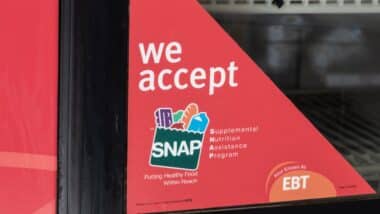The GOP’s latest megabill proposes significant cuts to crucial social safety net programs, including Medicaid and SNAP (food stamps). While proponents argue that the changes will streamline and improve efficiency, critics warn that they will exacerbate hunger and increase the number of uninsured Americans.
The Potential Impact on America’s Vulnerable Populations
The Republican megabill is set to reshape the landscape of social assistance in the United States, targeting programs that millions of low-income Americans rely on for healthcare and food security.
Medicaid, which provides essential health coverage to millions of low-income individuals, and SNAP, which helps struggling families put food on the table, are both facing reductions under the new proposal. If passed, the bill could lead to more stringent eligibility criteria, less generous benefits, and increased bureaucracy.
For individuals like Sydney Wurdeman, a 26-year-old from Nebraska who relies on Medicaid for chronic insomnia treatment, these cuts could have devastating effects. Wurdeman’s experience illustrates how these programs offer a critical lifeline for those in difficult health or economic situations.
Without them, many would face even greater challenges. “Getting on Medicaid allowed me to have some hope again that we could turn things around and get better,” Wurdeman said to MarketWatch, emphasizing the importance of the program in her recovery.
Criticism of the Bill’s Provisions
According to critics, including Eric Rodriguez of UnidosUS, the proposed cuts to SNAP and Medicaid are “cruel and callous.” They argue that while the changes are presented as efforts to increase efficiency, they will actually leave millions more without essential assistance.
The bill includes proposals to raise administrative burdens on applicants, including more stringent income verification for Medicaid and food assistance. These requirements, critics say, would likely lead to eligible individuals being excluded from receiving benefits due to red tape and complexity.
For example, changes to SNAP under the bill could result in over 3 million people losing their food assistance, according to the Congressional Budget Office. In addition, administrative costs would shift to the states, putting further strain on local governments already grappling with high demand for services.
The Debate on Work Requirements
Supporters of the bill, such as former social services commissioner Robert Doar, argue that tighter regulations, including new work requirements for Medicaid and SNAP recipients, are necessary to ensure the programs are better aligned with the economy.
He asserts that greater focus on work could encourage self-sufficiency and help recipients access higher-paying jobs.
However, critics contend that these work requirements are unrealistic for many individuals, particularly those facing health challenges or caring for dependents. They warn that such policies would disproportionately affect those who already struggle to make ends meet, ultimately leaving vulnerable populations even more exposed to economic hardship.









